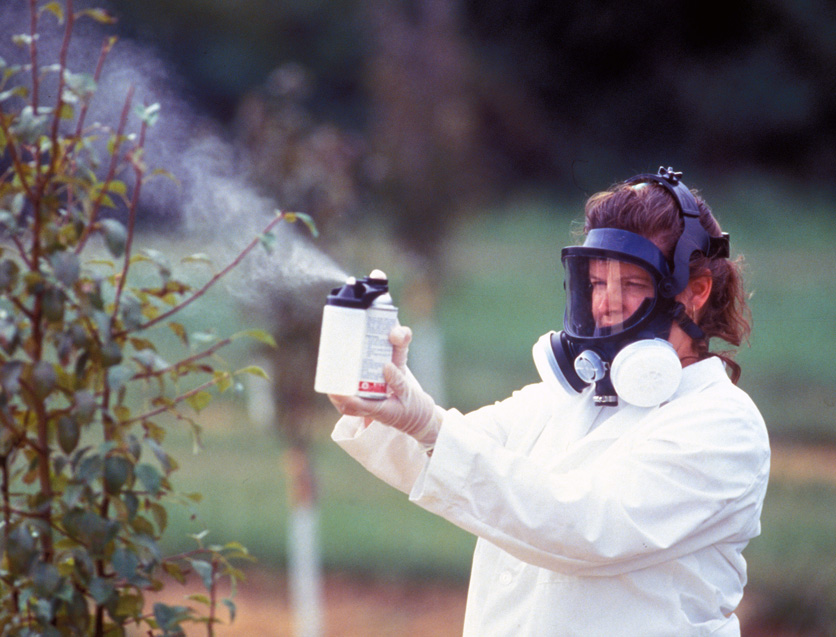Health officials advise wearing bandanas
The Centers for Disease Control is now recommending people wear face coverings in public, including for farmers and farmworkers. This could include bandanas, homemade masks or scarves that cover the mouth and can be washed and used again. Officials are urging the public not to purchase N-95 masks, saving those for medical professionals.
Yet "KN-95" masks are not listed for emergency use by FDA. In China, KN-95s do meet the Chinese equivalent of those FDA standards.
“FDA generally would not object to the importation of KN95s from China but cannot assure the performance and quality of individual shipments,” according to an FDA letter sent to Family Winemakers of California.
FDA has received reports of fraudulent masks and is urging importers to verify the certification.
AG bashes EPA assessment on 1,3-D
In a statement this week, California Attorney General Xavier Becerra explained comment he and a coalition of state attorney generals filed against the EPA’s revised risk assessment for 1,3-D, which downgraded the pesticide from being a “likely” carcinogen.
“California's agricultural workers are already exposing themselves to increased health risks as essential workers during the COVID-19 pandemic and should not be unnecessarily exposed to this dangerous pesticide,” said Becerra.
Industry drafts coronavirus credentials
Shelter in place orders are popping up all across the country to restrict movement, but agricultural workers and those who transport grains and other commodities need to get where they’re going. That’s why the National Grain and Feed Association, together with the American Railroads Association and the American Trucking Association, crafted a “standardized access credentials letter” for their members, NGFA President and CEO Randy Gordon said Thursday.
The Department of Homeland Security declined to put its logo on the letterhead, but did give its tacit approval to the document and state agriculture departments are being lobbied for their stamp of approval, Gordon said.
EPA defends enforcement policy
EPA officials say their decision to temporarily ease environmental enforcement during the COVID-19 pandemic has been misconstrued.
In a letter to lawmakers Thursday, EPA Assistant Administrator Susan Bodine said that “contrary to allegations you may have read, EPA continues to enforce the environmental laws.”
Under the policy released last month, EPA said it did not expect to seek fines for violations of routine monitoring and reporting requirements where EPA determines that COVID-19 caused the noncompliance.
Bodine’s letter comes the day after environmental groups petitioned EPA to issue an emergency rule protecting public health. “EPA is using an unprecedented public health crisis to justify allowing polluters to put our health at even greater risk — at a time when we most need their protection,” said Natural Resources Defense Council President and CEO Gina McCarthy.
Bayer settling Roundup lawsuit over labeling
Bayer will pay more than $39 million and alter its labeling of some Roundup products to settle a class-action consumer fraud lawsuit.
The company agreed to remove from its labeling on consumer grass and weedkiller products the statement that glyphosate, the active ingredient in Roundup, “targets an enzyme found in plants but not in people or pets,” in favor of one “akin to ‘Glyphosate works by targeting an enzyme that is essential for plant growth,’” according to the settlement.
The plaintiffs alleged the labeling was false and deceptive because the enzyme at issue is found in people and pets. “This enzyme, in beneficial bacteria, is critical to the health and wellbeing of humans and other mammals, including their immune system, digestion, allergies, metabolism, and brain function,” said the original complaint in Missouri federal court.
The labeling settlement comes as Bayer works to resolve more than 13,000 lawsuits blaming exposure to glyphosate for cancer in users. The company denies glyphosate causes cancer.
EPA watchdog looking at dicamba decisions
EPA’s inspector general will examine whether the agency followed its own procedures and policies in addressing “stakeholder risks” when it approved dicamba registrations in 2016 and 2018.
The use of the herbicides, most notably Bayer’s Xtendimax and BASF’s Engenia, has been blamed for millions of acres of damaged crops, mostly soybeans, across the U.S.
"The anticipated benefits of this evaluation include greater assurance that the EPA has adequate controls in place to promote its goal of ensuring pesticides are reviewed for their potential risks to human health and the environment," EPA said.
The IG report is expected to be completed by summer or early fall of next year.


